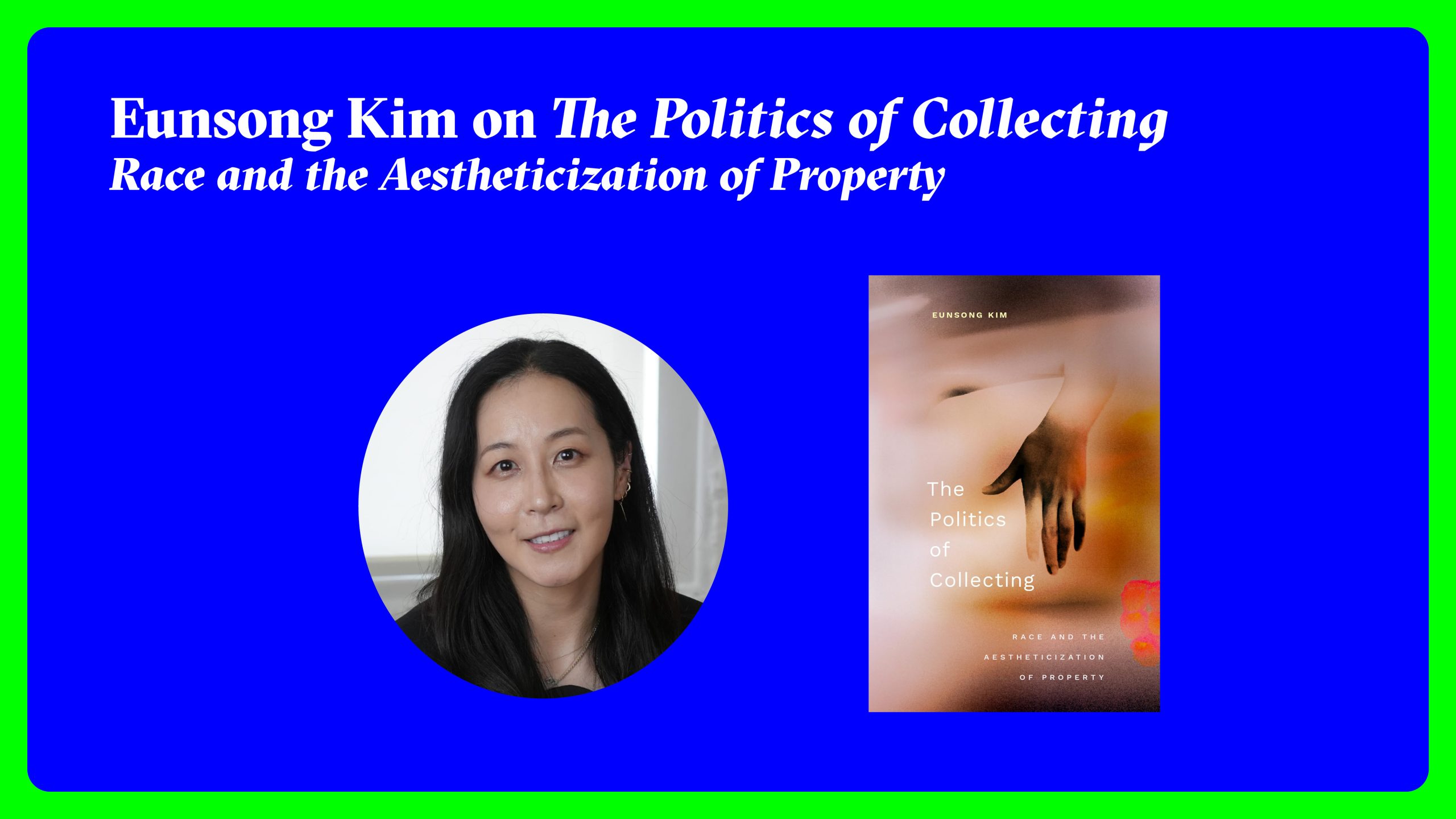Art & Art History
VOICES: Eunsong Kim

|
Gallery 400 Lecture Room
400 S. Peoria St.
Writer and poet Eunsong Kim’s latest book, The Politics of Collecting: Race and the Aestheticization of Property (Duke Press, 2024), examines how private and museum collections in the United States overlook the violent and colonial processes that underlie the objects they collect. She links the Homestead Strike of 1892 to a larger narrative on the role de-unionization efforts led by steel magnates Henry Clay Frick and Andrew Carnegie played in amassing personal art collections that are now museums. In posing the question, “whose garbage becomes the archive,” Kim challenges conventional understandings of collecting art, arguing that how objects are curated, collected, and displayed contributes to the racial and economic hierarchies that persist in today’s cultural sector.
Join Kim for a lecture on her book, followed by a conversation with Denny Mwaura, Gallery 400’s Assistant Director and Curator.
ACCESS INFORMATION: This program is free and CART captioning will be available. For questions and access accommodations, email gallery400engagement@gmail.com.
ABOUT:
Eunsong Kim is an Associate Professor in the Department of English at Northeastern University. Her practice spans: poetics, literary studies, and translation. She is the author of Gospel of Regicide, published by Noemi Press in 2017, and with Sung Gi Kim she translated Kim Eon Hee’s poetic text Have You Been Feeling Blue These Days? published in 2019. Her monograph, The Politics of Collecting: Race & the Aestheticization of Property (Duke University Press, 2024) materializes the histories of immaterialism by examining the rise of US museums, avant-garde forms, digitization, and neoliberal aesthetics, to consider how race and property become foundational to modern artistic institutions. She is the recipient of the Ford Foundation Fellowship, a grant from the Andy Warhol Art Writers Program, and Yale’s Poynter Fellowship. In 2021 she co-founded Offshoot, an arts space for transnational activist conversations.